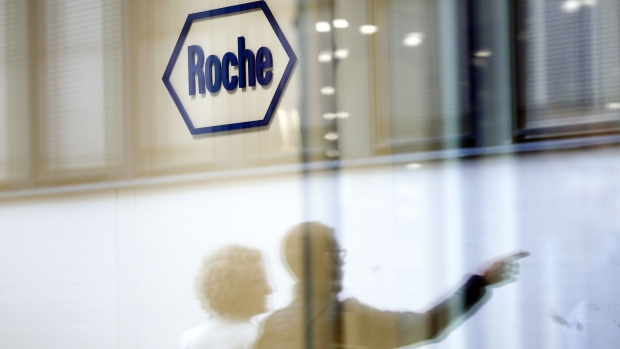Oct 18, 2022
Roche CEO Cautious on Alzheimer’s Trial Despite Eisai’s Success
, Bloomberg News

(Bloomberg) -- Roche Holding AG’s chief executive officer cautioned that groundbreaking results for an Alzheimer’s disease treatment from a rival drugmaker don’t necessarily mean the Swiss company will be able to deliver similar success in its own upcoming clinical trial.
“It is very dangerous to cross-read on trials,” Chief Executive Severin Schwan said in a briefing for reporters on Tuesday. “We have to wait for the readout, and then we can take it from there.”
Roche has promised results by the end of November on a large study of its experimental Alzheimer’s therapy gantenerumab. It’s the second important set of data on the disease this fall, after Eisai Co. and Biogen Inc. announced last month that their experimental drug lecanemab had slowed the disease’s progression.
Schwan was questioned on its Alzheimer’s medicine as Roche reported a decline in third-quarter sales. Revenue fell 6%, it said, as demand for Covid-19 tests and medicines abated and amid competition from cheaper drugs. The stock dropped 1.6% in Zurich trading.
What Bloomberg Intelligence Says
Roche’s weak 3Q sales report with few positives -- a 4% group sales miss including 6% for pharma, full-year guidance reiterated not raised, and some key late-stage cancer readouts slipping into 2023 -- will likely further fix investor focus on upcoming gantenerumab (Alzheimer’s) data scheduled for end-November, which we view as a high-risk event.
--John Murphy and Sam Fazeli
The Roche study is still widely expected to fail, Jefferies analysts wrote in a note to investors.
Both the Roche and Eisai-Biogen Alzheimer’s drugs target amyloid, a toxic protein found in the brains of patients. Scientists and the pharmaceutical industry have been aiming at amyloid without success for years.
The results published last month are “very significant progress in Alzheimer’s,” Schwan said. “There was always a big discussion in the community about the amyloid hypothesis as such, whether this mode of action has any potential influence on the progression of Alzheimer’s disease. Now, according to what we’ve been informed so far, there seems to be a clear impact, and that in itself I would say is very significant.”
(Updates with shares in fourth paragraph)
©2022 Bloomberg L.P.


